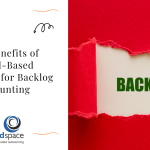The Role of Accounts Payable Specialists in Budgeting and Forecasting
In today’s competitive business environment, organizations must optimize their financial operations to achieve sustainable growth. Accounts Payable (AP) specialists play a pivotal role in this process, significantly influencing budgeting and forecasting beyond their traditional responsibilities of processing invoices and vendor payments. This article explores how AP specialists contribute to strategic financial planning, ensuring organizations can allocate resources effectively and meet their long-term objectives.
- Ensuring Accuracy in Financial Reporting
One of the core responsibilities of accounts payable specialists is maintaining accuracy in financial reporting. They meticulously record all expenses within the financial system, ensuring that every transaction is correctly coded and linked to the appropriate budget line items. This precision is crucial for effective budgeting and forecasting.
For example, if a company allocates $50,000 for office supplies but receives an invoice for $48,000, the records must reflect this correctly. Any inaccuracies can lead to flawed budgets and misleading forecasts, which can significantly impact the organization’s financial health. By overseeing financial reports, AP specialists help ensure that budgets accurately represent actual spending, thereby enhancing forecasting accuracy.
- Effective Cash Flow Management
Cash flow management is a fundamental aspect of any organization’s financial health. Accounts payable specialists are instrumental in managing cash outflows, negotiating favorable payment terms with vendors, and strategically scheduling payments. These decisions directly impact an organization’s liquidity and its ability to meet short-term obligations.
For instance, by negotiating extended payment terms, AP specialists can delay outflows, allowing cash to remain within the company longer. This practice is vital for estimating future cash flow needs and helps organizations minimize expenses while maximizing incoming cash. Efficient cash flow management directly correlates with accurate budgeting and forecasting, ensuring that businesses are prepared for future financial demands.
- Conducting Budget Variance Analysis
Budget variance analysis involves comparing actual expenses with budgeted amounts to identify discrepancies. AP specialists play a crucial role in this process by maintaining detailed records of all transactions.
When variances occur—such as higher-than-expected marketing expenses—AP records help financial planners analyze the reasons behind the discrepancies. By pinpointing whether increased spending is due to higher activity levels or misallocated expenses, AP specialists provide valuable insights that enable organizations to adjust future budgets and forecasts. This analytical approach enhances the overall financial strategy, ensuring alignment with organizational goals.
- Supporting Forecast Accuracy
Accurate financial forecasts rely on the analysis of historical data and trends. Accounts payable specialists contribute significantly to this process by providing essential data that informs projections for the balance sheet and income statement.
For instance, by reviewing past expenditure trends, AP specialists can identify seasonal fluctuations in utility costs, enabling finance teams to project future utility expenses more accurately. This capability is vital for effective budgeting, as it allows organizations to anticipate changes and adapt their financial strategies accordingly.
- Building Strong Vendor Relationships
Managing vendor relationships is a critical component of budgeting and forecasting. Accounts payable specialists are responsible for overseeing supplier interactions, payment terms, and purchase orders. Their ability to negotiate favorable terms can lead to significant cost savings, positively impacting the budget.
By fostering strong relationships with vendors, AP specialists can secure discounts for early payments or favorable credit terms. These savings contribute directly to the budgeting process, allowing organizations to allocate resources more effectively. Furthermore, maintaining reliable vendor partnerships ensures stability in supply chains, reducing the risk of unforeseen costs.
- Integrating Financial Systems
In the modern economic landscape, accounts payable systems are increasingly integrated with budgeting and forecasting tools. AP specialists play a key role in utilizing these systems, ensuring that expense classifications align with organizational budget goals.
For example, when using an integrated financial system, the input from AP specialists is processed to capture real-time data. This integration not only enhances the accuracy of accounts payable and receivable ledgers but also facilitates timely budget adjustments and accurate forecasts. The seamless connection between AP functions and financial systems is essential for organizations seeking to optimize their financial planning.
- Mitigating Financial Risks and Ensuring Compliance
Financial risk management and compliance with accounting standards are critical functions of accounts payable specialists. By managing records and adhering to financial controls, AP specialists help mitigate risks associated with budgeting and forecasting.
For example, by ensuring that all invoices are properly authorized and payments comply with company policies, AP specialists reduce the risk of fraud and reckless spending. This vigilance is essential for maintaining the integrity of the budgeting process and ensuring that forecasts are based on reliable data.
- Providing Strategic Input and Monetary Insights
Accounts payable specialists possess unique insights into spending patterns and financial positions due to their involvement in daily financial transactions. Their perspective can significantly inform the strategic formulation of budgets and forecasts.
For instance, AP specialists can identify trends, such as rising costs in specific categories, and communicate these insights to financial planners. This collaboration ensures that budgeting and forecasting are not only accurate but also aligned with the organization’s overall financial strategy.
- Enhancing Efficiency and Cost Management
Effective management of accounts payable processes is vital for overall cost management. AP specialists streamline payment processes, reduce processing times, and minimize operational costs.
By automating invoice processing and payment approvals, AP specialists can eliminate inefficiencies and reduce expenses. These cost savings directly impact the budget, as lower processing costs lead to improved budget estimates and increased profitability.
- Supporting Financial Planning Initiatives
Accounts payable specialists are crucial in generating accurate and relevant financial information that supports effective financial planning. Collaborating with financial planners and providing detailed historical data, they help ensure that budgets and forecasts are realistic and achievable.
This collaboration is vital for identifying the most suitable budgets and forecasts that accurately reflect the organization’s financial status. Ultimately, this alignment supports the achievement of long-term financial goals and objectives.
Conclusion
In conclusion, accounts payable specialists play a vital role in organizations’ budgeting and forecasting processes. Their meticulous attention to detail, cash flow management, and analytical capabilities significantly enhance financial reporting and forecasting accuracy. By managing vendor relationships, ensuring compliance, and providing strategic insights, AP specialists contribute to developing realistic budgets and reliable financial projections.
While their work may seem focused on transactional processes, the impact of accounts payable specialists on organizational financial health and decision-making is profound. As businesses continue to navigate a complex economic landscape, the value of AP specialists in shaping financial strategies cannot be underestimated.


